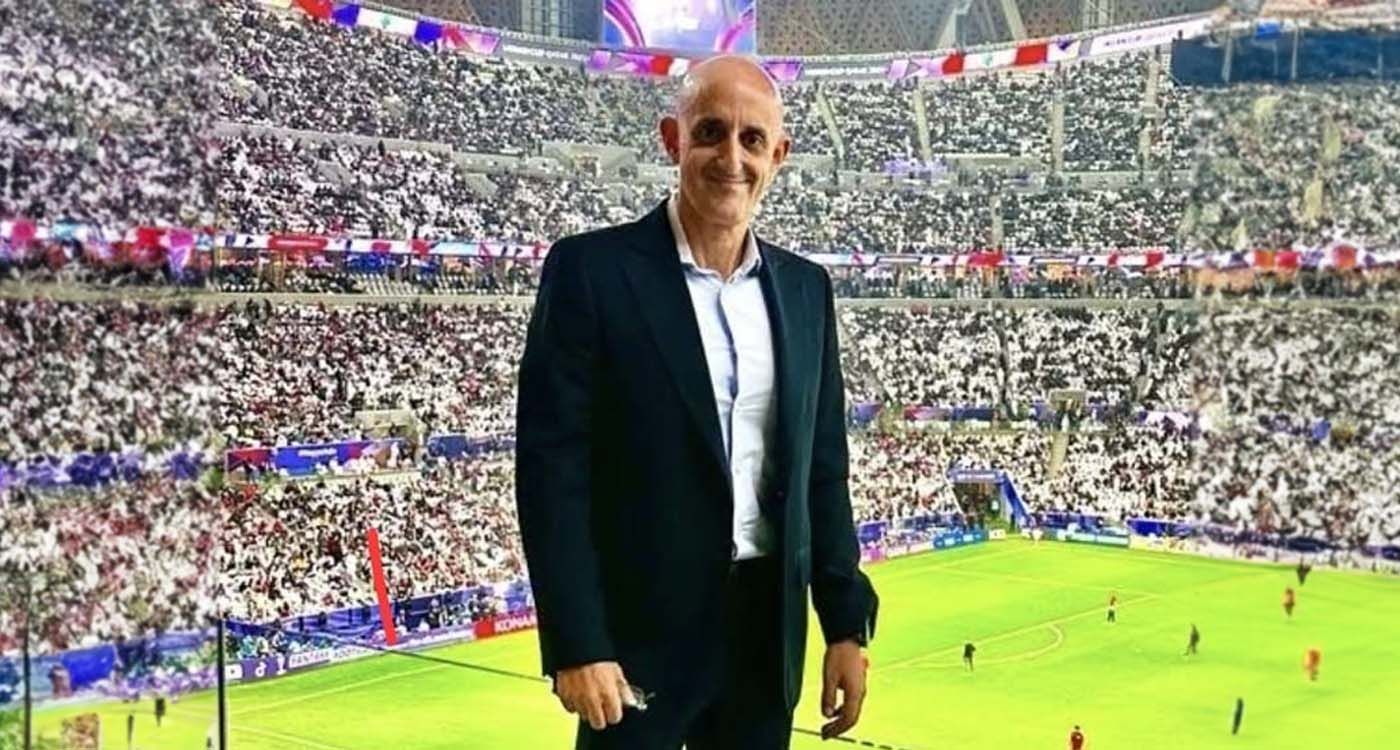
A few hours after FIFA's announcement, Lebanon has placed one of its own at the heart of the decisions that will shape the future of futsal. Between local heritage and international projection, Semaan Douaihy's appointment to the Futsal Committee (2025-2029) sounds like validation at the highest level — and a promise of upward mobility.
A global whistle for a local builder. FIFA has officially appointed Semaan Douaihy to its Futsal Committee for the 2025-2029 term. A backseat position? No. Rather, it is a technical box from which the direction, formats, regulations, development, and roadmap of a rapidly growing discipline are decided. For Lebanon, it is a flag planted in the center of the field.
A Builder at the Helm
The man needs no introduction in the corridors of the Lebanese Football Association (LFA). Head of the Futsal Committee from 2005 to 2021, Douaihy put the game on the map by launching the country's first official league. Before him, the game was played in halls and neighborhood tournaments; with him, it gained a calendar, structured clubs, trained referees, and young players with a clear path forward. Now a member of the LFA Executive Committee and chairman of the Competitions Commission, he continues to tighten the screws: streamlined formats, professional standards, bridges between training and the elite.
“Joining the FIFA Futsal Committee means bringing Lebanon's voice to where the rules of the game are being drawn up. I go there with the humility of those who know where they come from and the ambition of those who know where they want to go,” Semaan Douaihy tells Ici Beyrouth.
Beyond Beirut, Douaihy speaks fluent “regional.” An administrator at the West Asian Football Federation (WAFF) and vice president of its Competitions Committee, he also sits on the AFC Competitions Committee. Translation: a keen understanding of the realities on the ground in the Middle East, direct access to continental projects, and the ability to transform Asian experiences into local levers. The FIFA appointment adds a global dimension to an already multi-level career.
Global Standards for a Local Project
It is sometimes forgotten, but futsal is a catalyst for soccer: control under pressure, quick reading of the game, surgical first touch, lightning-fast transitions. On a global scale, the discipline has shifted gears: professionalization of leagues, growth of academies, rise of video analysis, increased demands in terms of refereeing and safety. The major nations are clear about this: investing in futsal means improving the entire “football” product, from U13 to pro.
In concrete terms, this appointment opens up new avenues and sets new standards. Alignment with FIFA benchmarks can speed up licensing, training cycles, and infrastructure upgrades. A stronger case for stable schedules will give clubs and national teams more breathing room. Coaches, referees, and managers will have direct access to certification modules and best practices—including data, specific preparation, and safety. The feminization and massification of futsal in schools and universities will find a more solid framework. Finally, a home advantage: intimate knowledge of local constraints—economic, energy, logistical—to offer realistic solutions rather than wishful thinking.
“Our goal is simple: to improve structure so we can play faster, train more so we lose less, and make futsal a springboard for all Lebanese soccer. Every decision I defend will have one guiding principle: to bring concrete standards, useful training programs, and clear schedules to the country. We won't sell dreams: we'll build something sustainable,” he continues.
In the short term, the challenge is twofold: to consolidate the foundation (training centers, clear U17/U19 competitions, pathways to the senior level) and to raise the elite (specific physical preparation, scouting, micro-cycles adapted to futsal). In the medium term, the aim is to establish a regular presence on the continental stage, with competitive clubs and a national team with a clear game plan: coordinated pressing, clean ball distribution, and efficiency on set pieces. Because futsal is also the art of detail—and of matches that are played out over ten meters and a second.
Semaan Douaihy's position at FIFA is not just another line on his resume; it is a key to accelerating a project. If Lebanon can turn this window of opportunity into a milestone—stable governance, targeted funding, ongoing training—the curve can quickly shift. In a country where indoor sports have often saved generations of talent, futsal remains a school of resilience and a place where players learn to win close games.




Comments